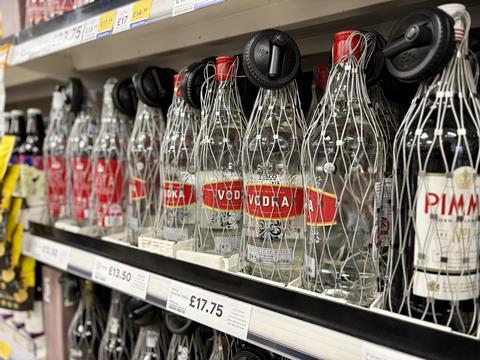
In 2014, then home secretary Theresa May navigated the Anti-Social Behaviour, Crime and Policing Act (ASBCP) through Westminster and into law. I fear this law signalled the effective collapse of law and order.
For frontline retail workers experiencing the ‘crime epidemic’, this will not come as a surprise. How did it come to this?
In 1960, the UK had 94 heroin addicts. This rose to 2,240 by 1979, then to approximately 150,000 by 1995. In 2010/11, I wrote several articles making the case that “the war on drugs was over – we lost”. At the time, the number of ‘problematic drug users’ (PDUs) had reached around 350,000, and this remains the official estimate in the UK today.
The ASBCP Act established the £200 threshold on shoplifting. In principle, this meant ‘low-value’ shoplifting became a ‘summary-only offence’. In practice, it resulted in many police forces simply ignoring ‘low-value’ shoplifting.
I can’t say for certain why May set the threshold at £200, but what I can say is this: for an addict with a habit costing around £70 per day, this amounts to a ‘get out of jail free’ card.
Police forces are overwhelmed
In my experience, the value of stolen goods typically varies from as little as 20% to as much as 50% of the ticket price. A reasonable average profit margin for stolen goods is around 33%. Some fund their addiction by begging, others turn to prostitution. But for most, once benefits money runs out, they need to steal around £200 worth of goods a day to fund their addiction.
As of March 2024, there were 166,500 police officers in Great Britain compared with an estimated 350,000 PDUs. This means the police are outnumbered 2.1 to one. A House of Commons Library report published in July 2024 showed prison capacity in England and Wales was 87,900, while Scotland had a further 8,000, giving a ratio of approximately 3.6:1.
Keep in mind only a small percentage of prison capacity, around 18%, holds prisoners for shoplifting, theft, etc. – so the effective ratio is around 20:1, or 5%.

I feel my analysis of government data proves ‘beyond a reasonable doubt’ that the forces of law and order are overwhelmed and that, for all practical purposes, the justice system has collapsed.
As for Labour’s much ballyhooed Crime and Policing Bill, I fear it is just a publicity stunt.
The reality for thieves
If a PDU gets caught, they will most likely get a fine. Last December, The Telegraph reported a £4.4bn bill in unpaid court fines, fees, etc. Around half of fines go unpaid.
Those that understand how the criminal justice system works – and most PDUs know how the system works – know convicted criminals don’t have to pay court fines if they don’t want to, and there is little the courts can do about it.
Eventually, a convicted shoplifter will face a short prison sentence. And when I say short, I mean a single night in prison. The public simply have no idea just how broken down law and order is in the UK.
Being based in Edinburgh, I don’t know what police chief constables are saying south of the border. But what I can say is Scotland’s chief constable describes her force as “overwhelmed”.
The Scottish Police Federation general secretary recently said: “Policing in Scotland is at breaking point.”
My off-the-record conversations with serving and retired police officers confirm the facts. One recently retired senior officer went so far as to describe Police Scotland as “a defeated force”.

Official data shows three-quarters of police forces in England and Wales are failing to meet 999 call response times, and it can be hours or even days before a police officer actually turns up.
In 2010/11 I sounded the alarm about losing the war on drugs. It should not come as a surprise that law and order collapsed a few years later.
‘Problematic drug users’ are not the problem
In my view, PDUs are the symptom of a problem. The real problem is policy.
The Misuse of Drugs Act 1971 (MDA71) regulates the manufacture, supply and possession of controlled drugs. It does not, however, regulate the consumption of controlled drugs. By any standard, this is a spectacular failure of biblical proportions.
In general, policy fails for at least one of three reasons. First, flawed evidence. Second, the ‘human dynamic’, often in the form of loopholes. Third, no systemic understanding, or a lack of ‘joined-up thinking’. Drug policy, north and south of the border, fails on all three counts.
There is a “revolving door of addiction, crime and prison”. Current policy locks PDUs into this cycle. What drug policy needs to do is provide a way out, to break this cycle.
Following my articles in 2010/11, I had a meeting scheduled with the then Scottish minister responsible for drugs policy, Roseanna Cunningham, to discuss my set of radical proposals to fix drug policy, starting with the MDA71. The meeting was cancelled.
The key takeaway here is to highlight the ongoing failure of the political elite to fix fundamentally flawed drug policy, and to stress the urgent need to fix it now. I am confident the retail crime crisis, fuelled in large part by drug addiction, can be brought under control with appropriate reforms to drug policy.
Mev Brown is an independent policy analyst



















No comments yet